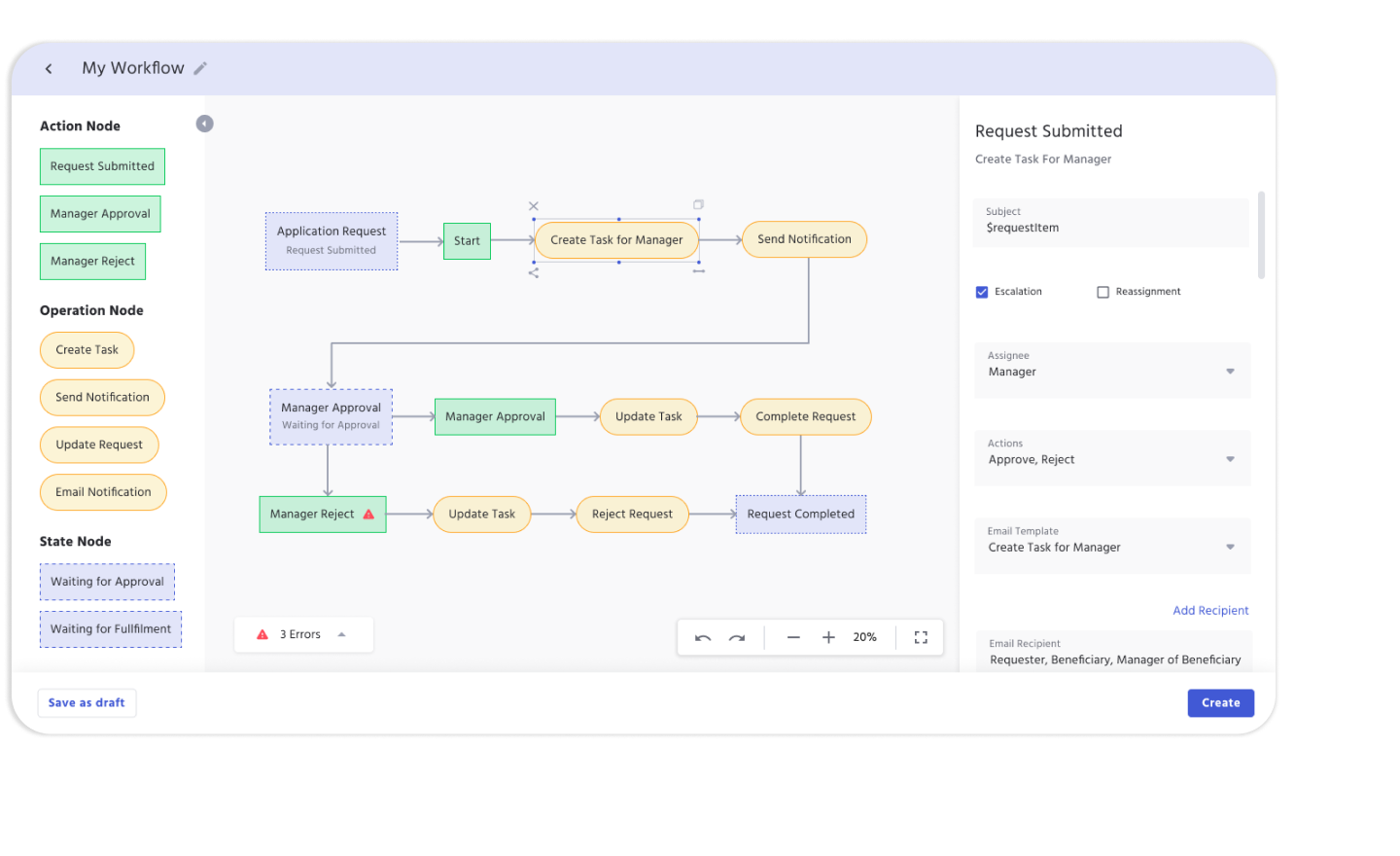Approval Workflow
IAM (Identity and Access Management) approval workflows are processes that govern the granting, modification, or removal of access rights within an organization.
These workflows typically involve requesting access, obtaining approvals from relevant authorities, and implementing the requested changes. They are crucial for several reasons:
- Access Governance: Govern access to resources with clearly defined approval processes.
- Security and Compliance: Enhance security and ensure compliance by obtaining proper authorizations.
- Risk Management: Mitigate risks associated with access by careful consideration and oversight.
- Efficiency: Streamline access management for timely responses to access requests.
- Auditability and Accountability: Create an audit trail for transparent records and accountability.
IAM approval workflows are essential components of an effective Identity and Access Management strategy, providing controlled and auditable processes that enhance security, compliance, and overall access governance within an organization.
Workflow Solutions
IDHub was designed to automate and streamline the sequence of events and processes within an organization.
It provides the tools to define, execute, and monitor workflows, improving efficiency, collaboration, and visibility in business processes.
IDHub's workflow engine is node-based, using a combination of State Nodes, which request triggering actions throughout the workflow lifecycle.
Admins can configure IDHub to perform simple or sophisticated actions, while moving from one state to another, using the various Operation Nodes in the workflow designer.
IDHub provides a diverse range of pre-defined nodes with API capabilities, and the option to create or import custom-made nodes.
- State Nodes: Stop the workflow and either terminate or await the next action to start
- Action Nodes: Define manual or automated processes or actions between two states
- Operation Nodes: Follow Action Nodes or Condition Nodes
- Condition Nodes: Process Action Nodes with multiple possible outcomes, which lead to separate branches within the workflow. They use preexisting or custom javascript to identify the proper result from the previous Action Node logic.
- Errors: Assist in debugging and ensure proper logic and consistent operation
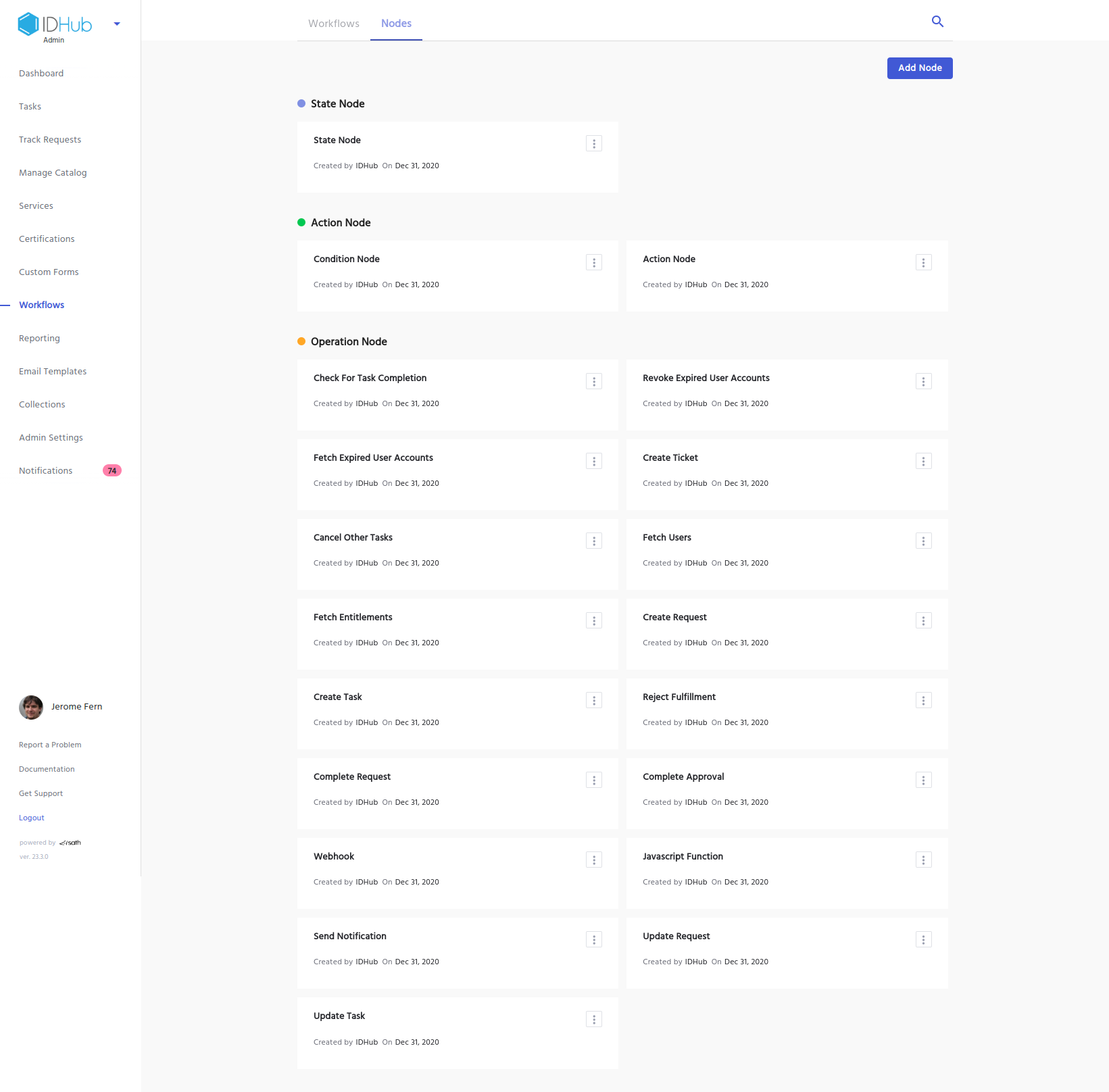
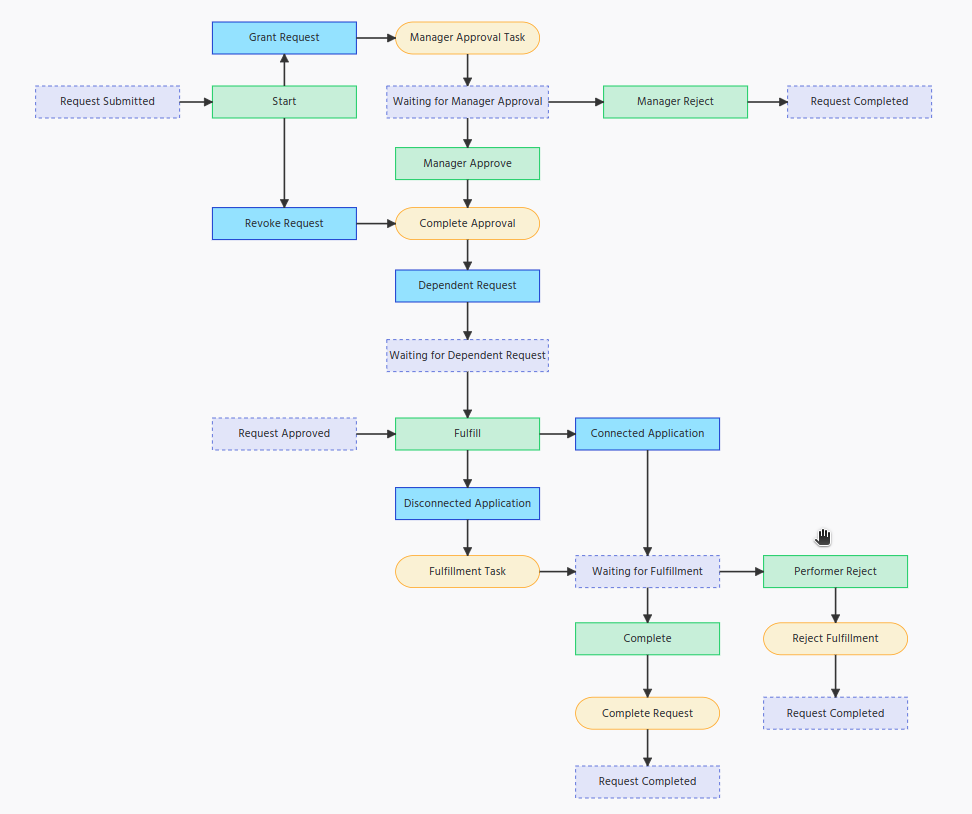
Workflow Rules
Workflow rules are a set of automated instructions that dictate how certain tasks or processes should be handled within a business.
Many businesses need a workflow approval software that sends custom emails at certain points of the workflow process.
IDHub comes with many out-of-the-box emails.
However, custom emails can be created and sent to any individuals depending on any status like approval, rejection, or any other action.
While creating a workflow rule, admins can add the “Send Notification” Operation Node, which will send an email at any point in the workflow.
Simply select the template or add a new email, and recipient(s) that will receive the notification.
Email templates can be created and stored separately from workflow approval, and used at any point within IDHub.
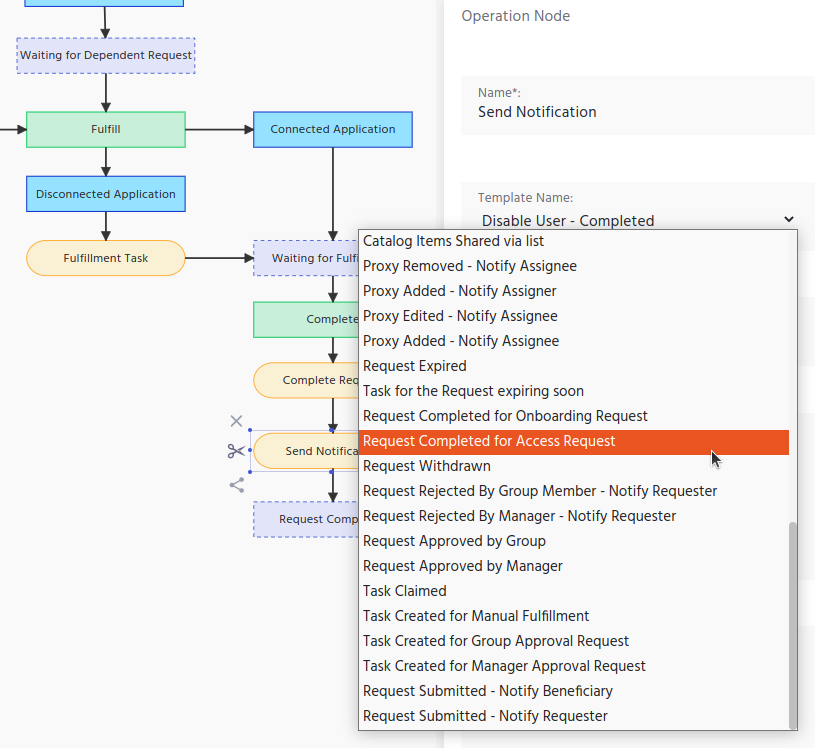
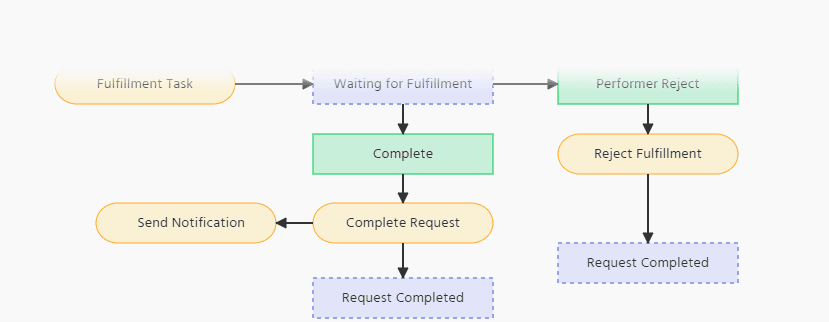
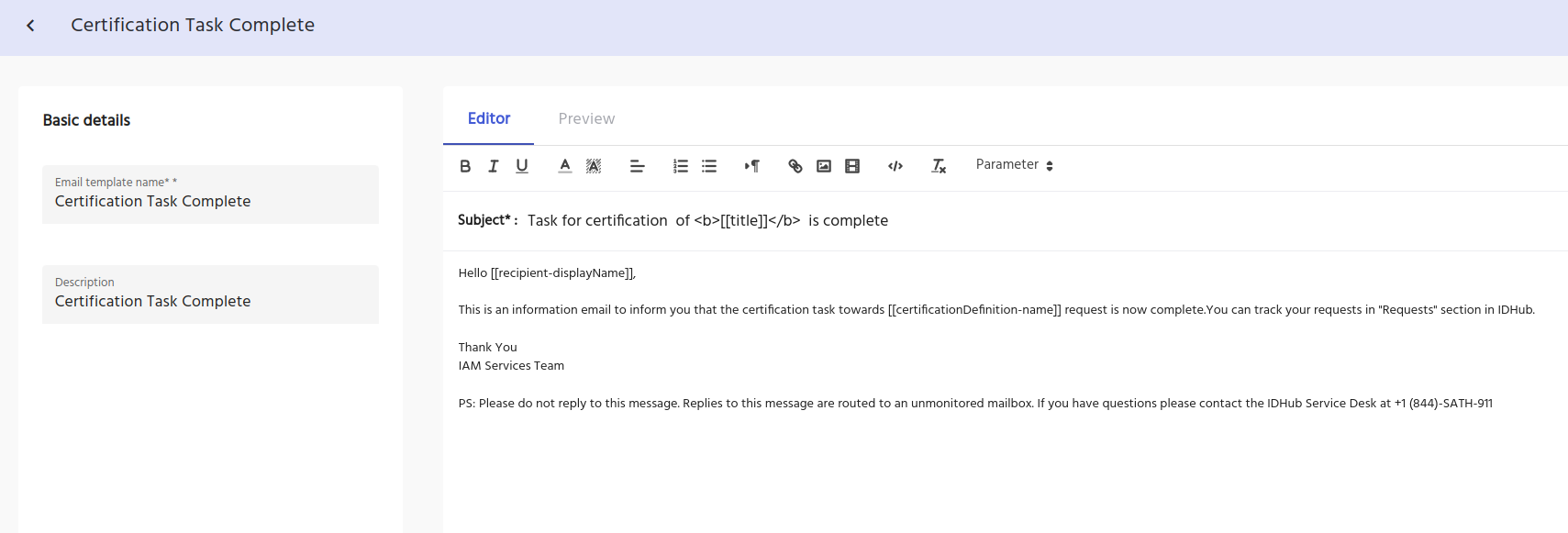
Workflow Approval Process
Frequently, we come across IT personal expressing the need for a solution that is capable of collecting specific data at any point in the approval process.
IDHub's Custom Forms solves this problem.
Custom Forms can be inserted at any point of the process, collecting any data needed for the approvers or any user within the flow.
One example of using a Custom Form within a workflow is configuring the Task Node to require the approver to fill out the form before completing an action.
Take a peek at IDHub, Tour it yourself with no obligations.
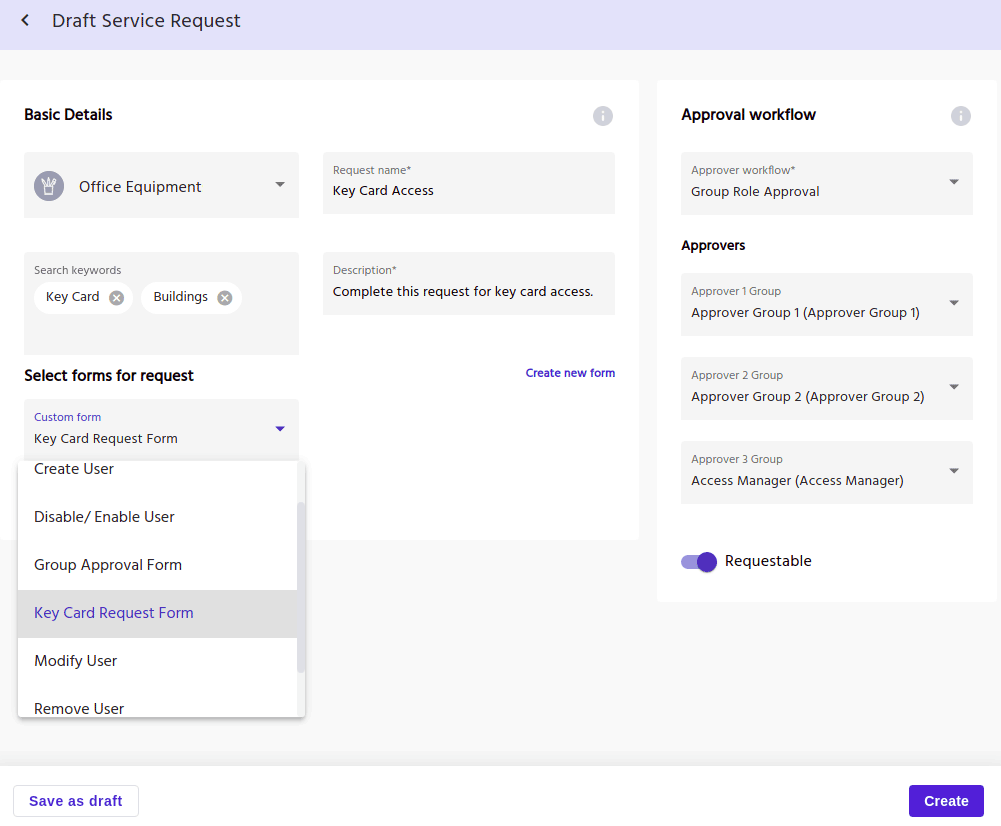
Compliance Tools for Cyber Security
Cyber Security Tools
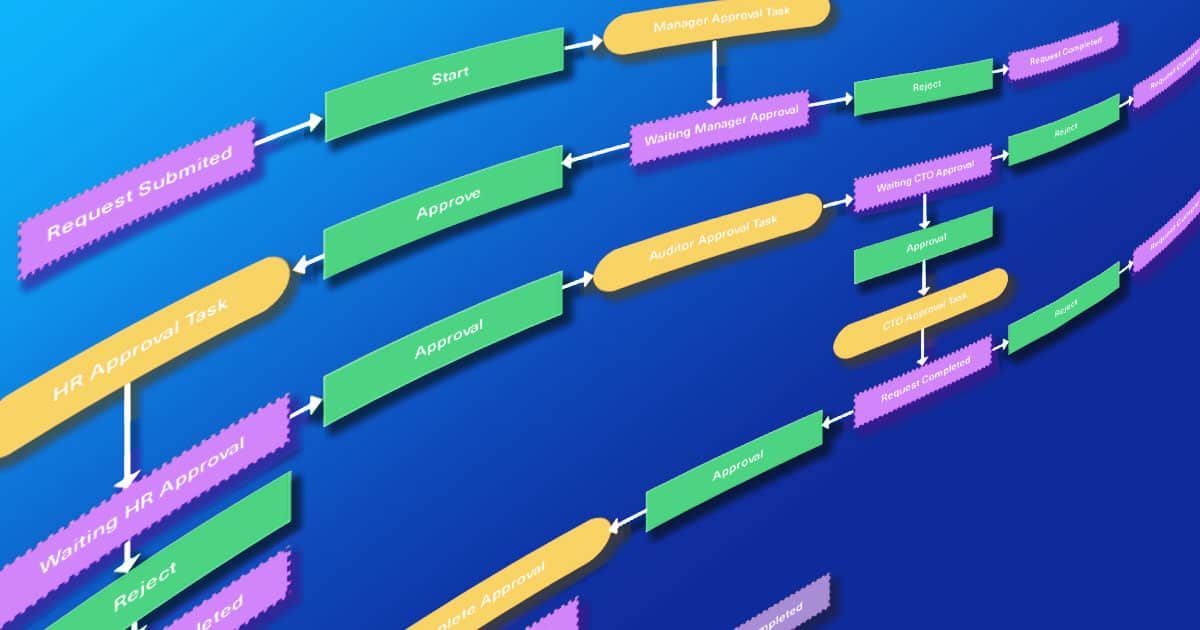
IDHub Approval Workflows
Learn the basics of workflow approvals, see our most common workflows, and brush up on your workflow skills for your own business workflows in our blog.
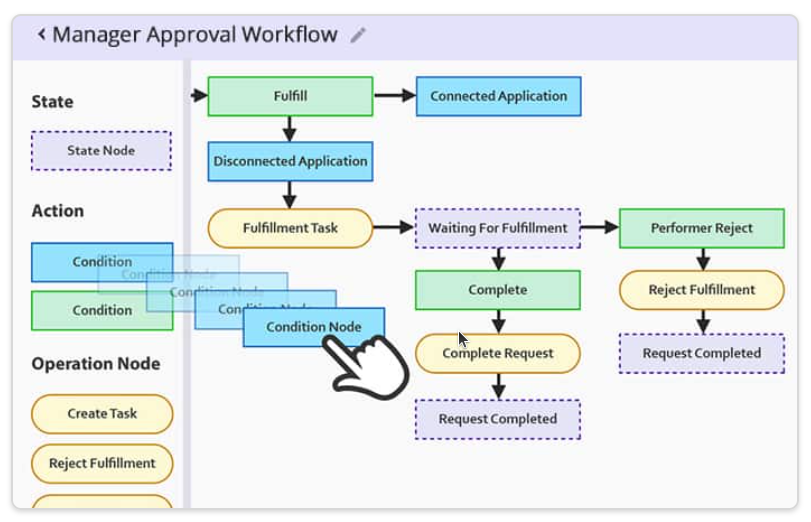
Approval Workflow Templates
Download our most common Workflow Templates, including editable versions in Visio, SVG, and PDF formats. Completely free to you.
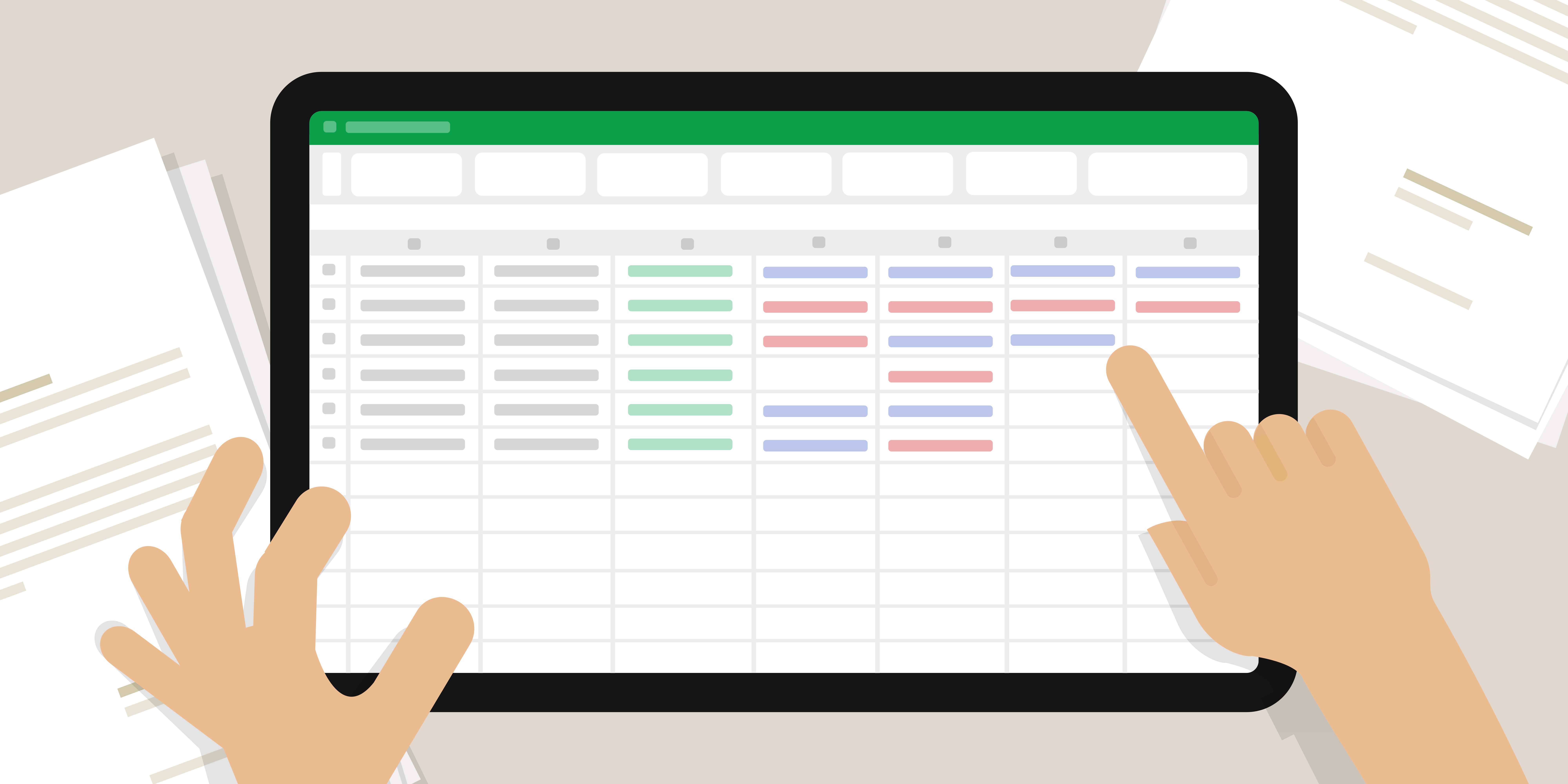
Cybersecurity Assessment Template
Discover why cybersecurity assessments are vital for regulated industries—plus a free template to strengthen security, manage risk, and stay compliant.
